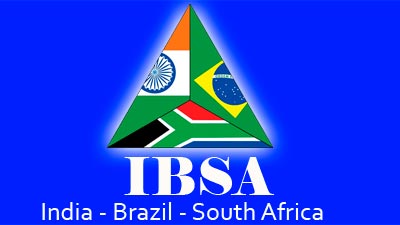
Two years ago, after the 5th IBSA Summit in South Africa, I argued that IBSA had turned into an important political platform, writing that
“…despite the rather low-key declaration and no big breakthrough, IBSA matters, and this years’ summit was of particular importance given that the three countries all hold non-permanent seats in the UN Security Council, providing their voice with additional weight at such a momentous time of global economic turmoil and political uprisings in the Middle East.”
Yet rather than holding the 6th IBSA Summit as planned in June 2013 in New Delhi, the event was quietly postponed due to “scheduling issues”. No new date for the summit has been specified. IBSA’s 10th birthday party (it was founded in 2003) simply did not take place.
International agreements and multilateral bodies are rarely formally discontinued. Rather, they die a quiet death, and indeed, the media echo about the postponed summit has been almost nonexistent. Few would probably even notice if the topic of the 6th IBSA Summit never came up again. Is that the end of IBSA?
Perhaps. One may argue that scheduling the IBSA Summit only a few months after the BRICS Summit was a bad idea to begin with: Why would Brazil’s President Dilma Rousseff travel for 20 hours just to meet with two heads of state she has just met in March in South Africa? In addition, Manmohan Singh is very much a lame duck (he will not seek reelection next year) and the personal chemistry between South Africa’s and Brazil’s leaders is said to be mediocre at best after Jacob Zuma left Rousseff waiting for more an hour before he would meet her in Durban (Zuma’s chat with Putin went overtime). It would certainly have been more intelligent to organize the 10th IBSA Summit in South Africa a day after the BRICS Summit. Brazil did the same when it played host to both events in April 2010.
And yet, IBSA’s main raison d’être was to foster people-to-people ties between its societies. While they are still far apart, a lot has changed over the past decade. Trade between the three has grown sharply, albeit from a small base. IBSA supporters can point to the fact that ties between the three countries have never been more intense. On several important occasions, IBSA countries coordinate the way they position themselves in international forums.
If in fact IBSA Leaders Summit were to be discontinued (something that rather unlikely) it does not mean that IBSA’s societies do not continue to strengthen ties. For example, events like the IBSA Women’s Forum continue to take place normally. Stronger cooperation between IBSA societies is something the grouping’s founding fathers can arguably be proud of.
And yet, if IBSA Leaders Summits are really to be discontinued, it can be seen as a diplomatic victory for China, which has long sought to make IBSA superfluous, as I have argued here. During the 4th BRICS Summit in Delhi in 2012, I argued that
“..broadening the scope of the BRICS concept raises the question about the usefulness of IBSA, which focuses on cooperation regarding many low-key technical issues rather than geopolitical challenges. That may be precisely the goal of China, which is excluded from the IBSA alliance.”
Brazilian policy makers should consider hosting the IBSA Summit together with the BRICS Summit in 2014 in Brazil to assure attendance. After all, IBSA is a group worth keeping.
Read also:
Why IBSA and BRICS should not merge
The “IBSAization” of the BRICS
Brazil and UN Security Council reform: Is it time for another big push?








